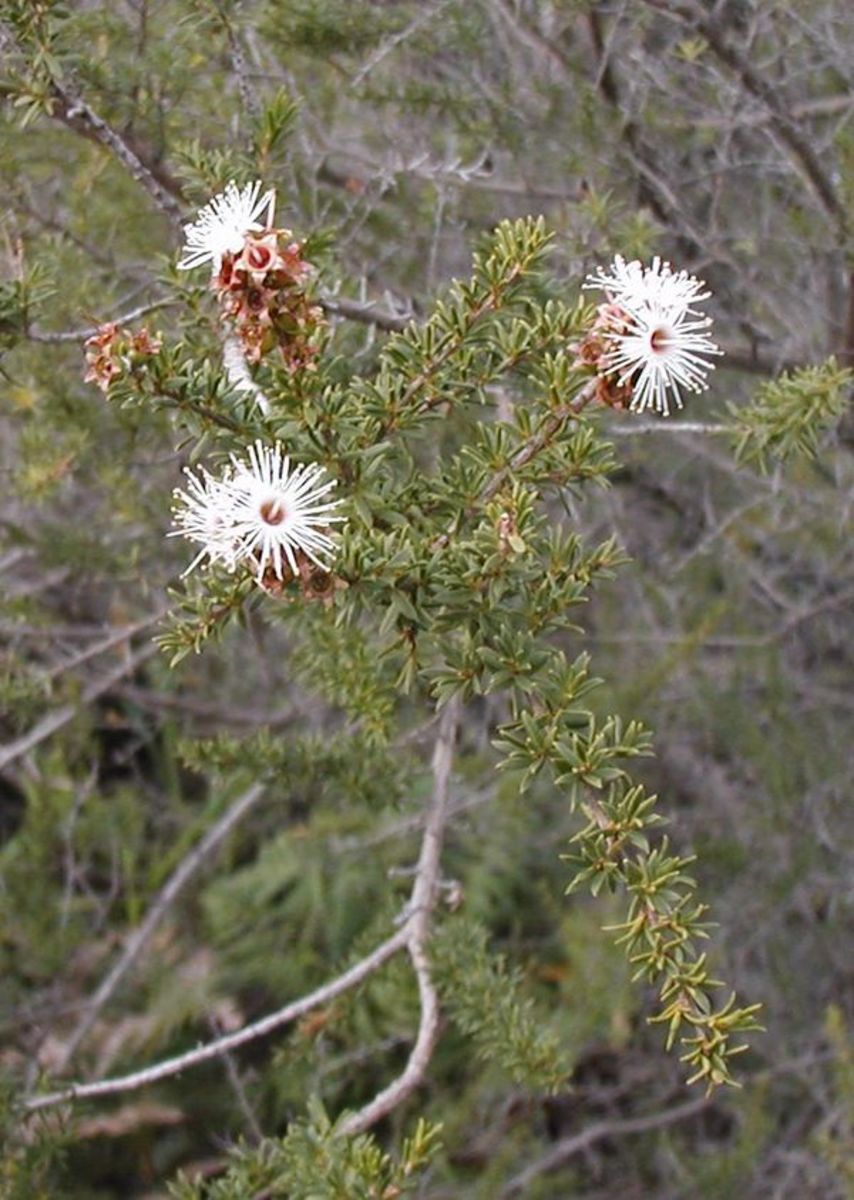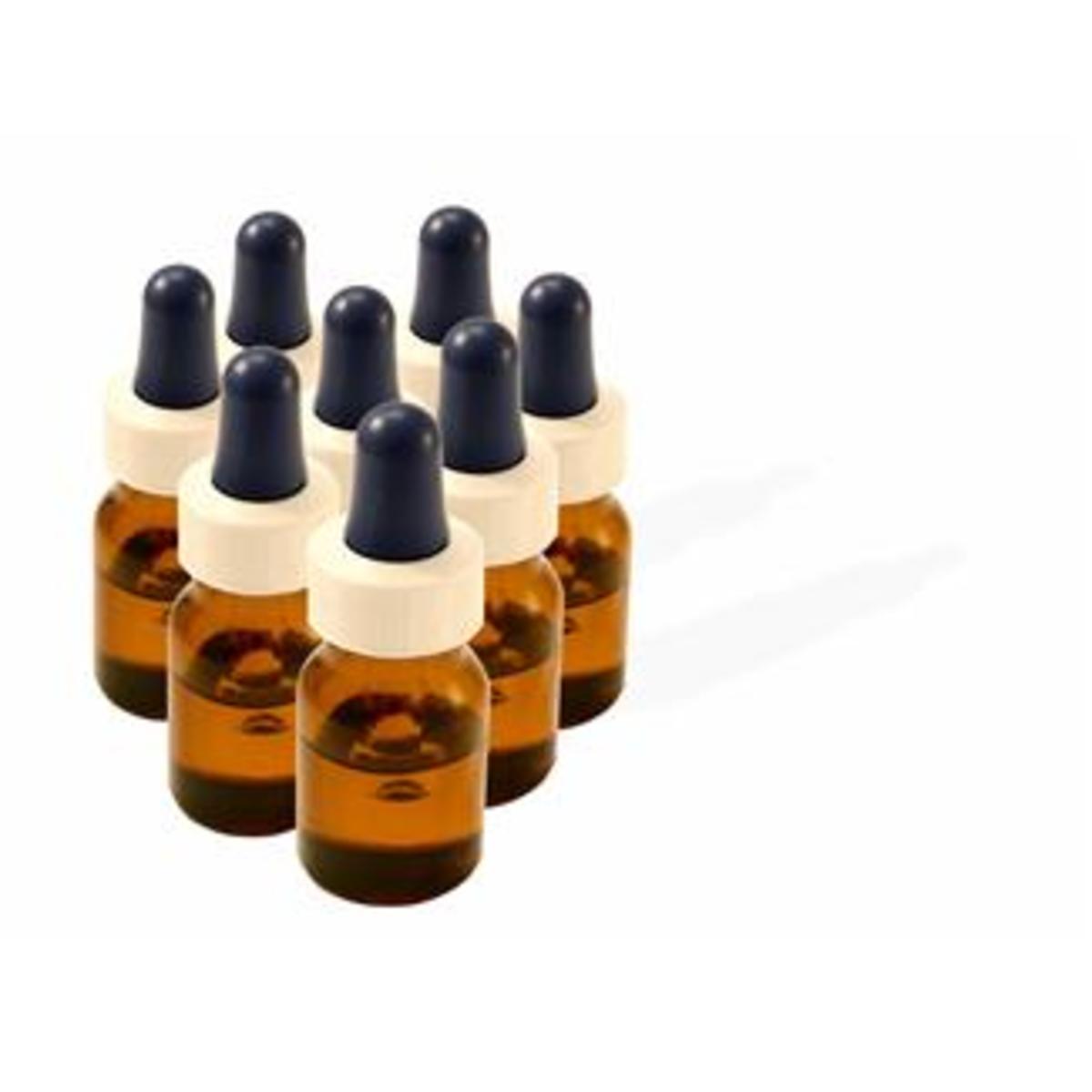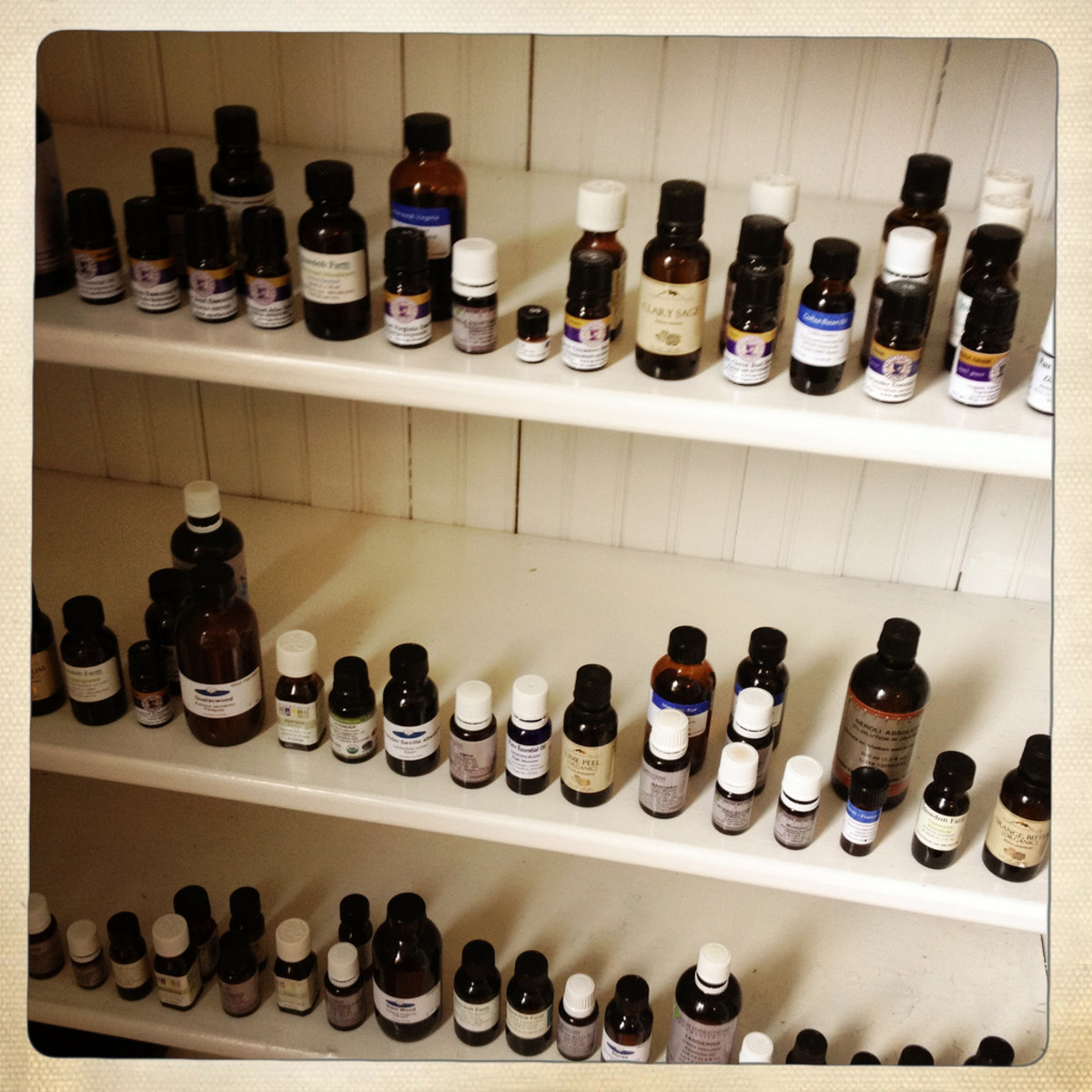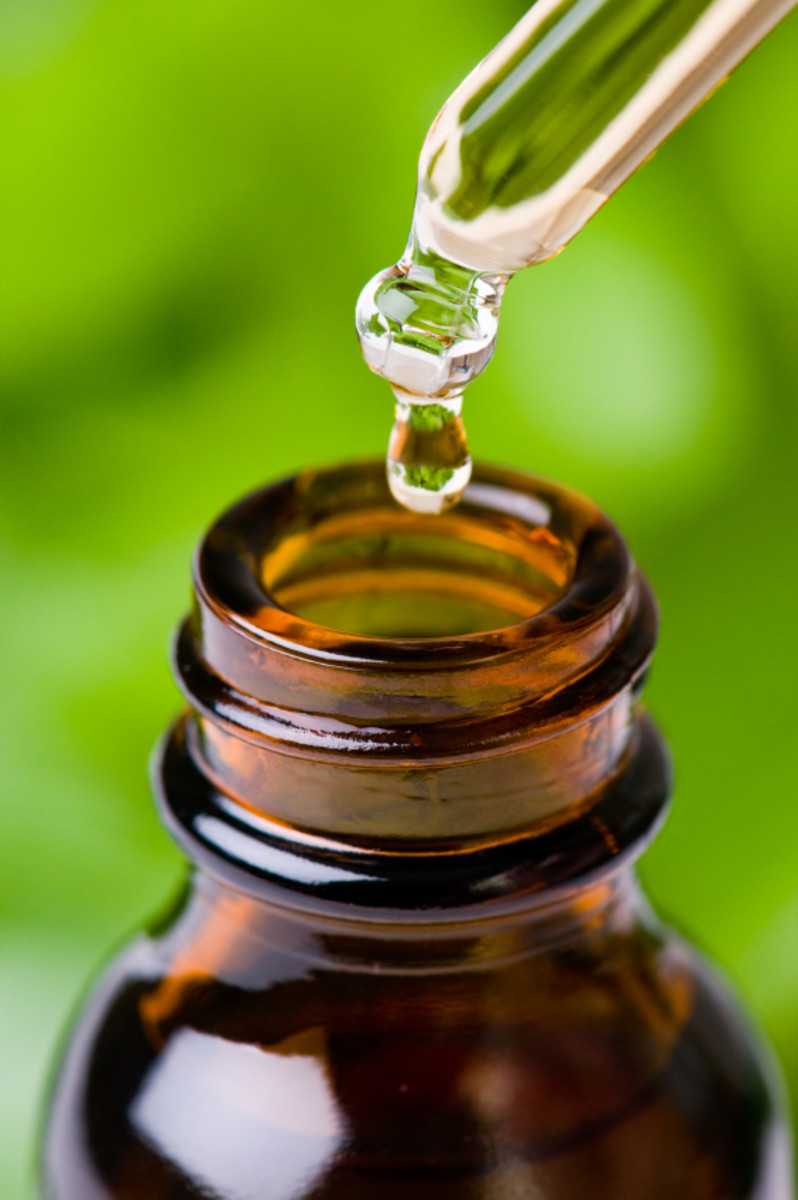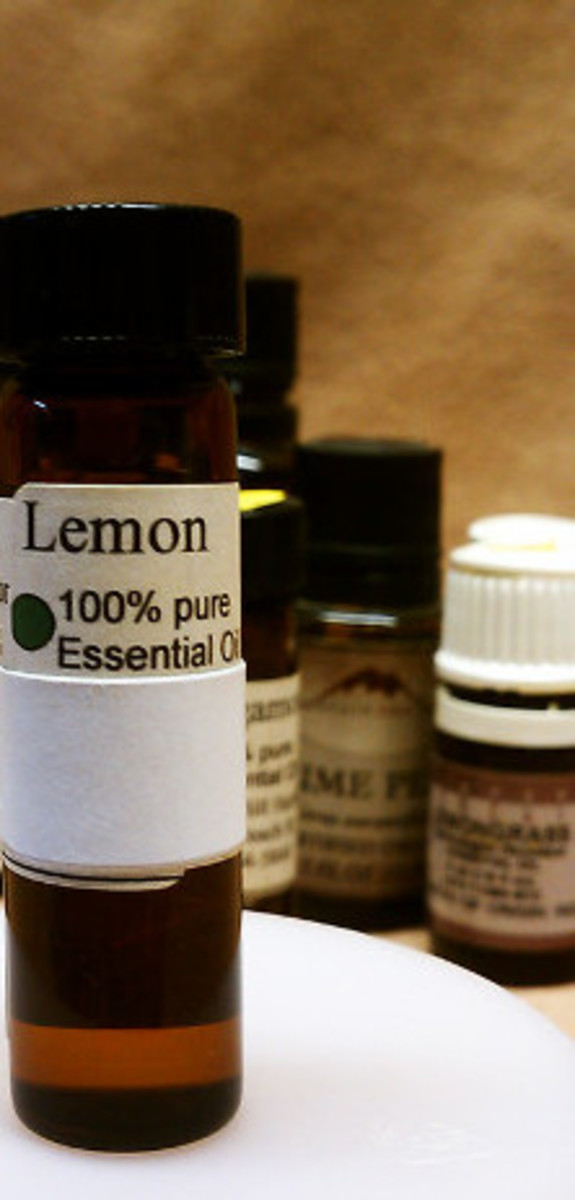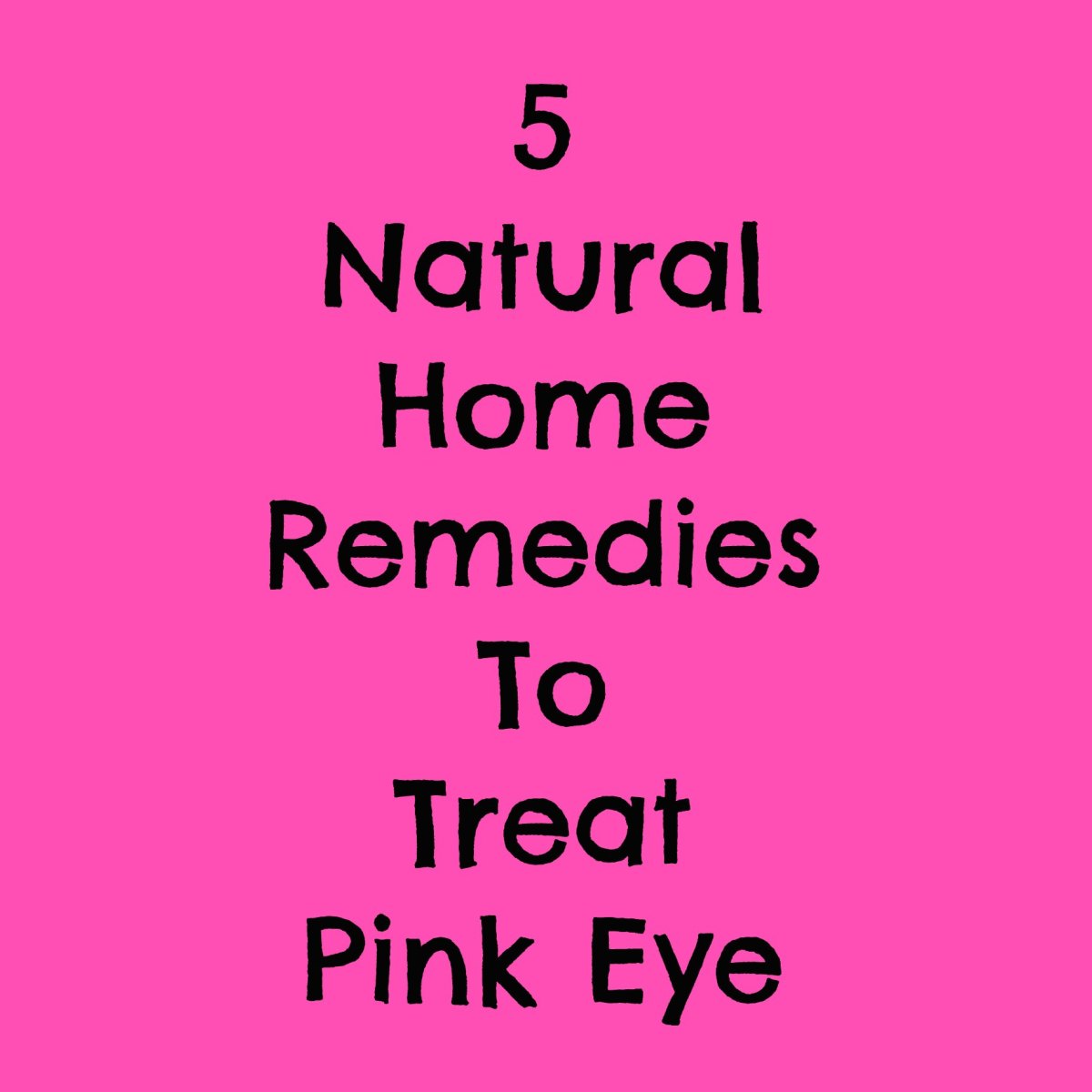How Safe Are Essential Oils?

Are Essential Oils Safe? These Are The Important Things You Need To Know
Whether you use essential oils for their fragrance, for health, or for esoteric and magical purposes, it is important to remember that they are highly concentrated plant extracts. They need to be used with care and respect.
So how safe are essential oils? I would say that essential oils are safe in the same way that cars are safe when driven with skill, awareness and following the rules of the road.
There are some oils that although available, should not be used in conjunction with certain conditions, and some that should not be used at all, due to their toxicity. They are listed in the section on warnings below. Oils not on these warnings lists may still be contra-indicated for certain conditions, and it is recommended that you always check with your medical practitioner if you are taking medication, are being treated for a medical condition, or have doubts about the appropriateness of any essential oil treatment.
Apart from the oils listed in the warnings section, there is always the possibility that certain people might find that they have an allergic reaction to a particular oil. For example, I and many people use neat Lavender oil with great pleasure and efficacy for many things, but I know that there are those that find that it irritates their skin, and need to dilute it.
For this reason, it's always a good idea to try out any oils and blends at their weakest solution first on a small patch of skin, and leave for 12 hours just to check. It is extremely rare, but everyone is different, and there can never be a one size fits all rule in things like this.
SAFETY GUIDANCE FOR THE USE OF ESSENTIAL OILS
Do not ingest the oils:
Essential oils are highly concentrated, and by themselves can irritate and burn the mouth delicate and gut lining.
Be very cautious and sparing using essential oils in cooking:
Some essential oils, such as Peppermint, Orange, Lemon and Lime are used in commercial food and confectionery preparation, but there are also oils that are positively unsuitable to internal use. You need to know the difference, and if your knowledge of oils is limited, it is best to avoid using them in this way completely.
Avoid skin and eye contact with undiluted essential oils
Always wash your hands after opening essential oil bottles to avoid transferring oils to eyes, nose and mouth, or any other tender parts. Certain people find that undiluted oils irritate their skin, and everyone will find essential oils extremely unpleasant, and possibly damaging if transferred to the eyes.
Keep individual oils uncontaminated, and ensure their longer life and effectiveness:
Over time, during handling and use, oils become contaminated by the transfer of other oils on the hands. Always use dropper bottles, and allow the oil to discharge naturally without touching the dropper tip. In an instant, an oil is contaminated by contact with skin, so smell oils by putting a drop on a tissue or hanky, and not your skin.
Don't leave essential oils, oil blends or aromatherapy burners with infused water within the access of animals or children.
Essential oils will cause oil marks on materials and clothing, and may affect certain surfaces.
The Following Oils Should NOT Be Used For Any Reasons Due To Their Toxicity
Bitter Almond - Prunus amygdalus var. amara
Bitter almond oil contains prussic acid, commonly known as cyanide. Ingesting only 7.5 ml of bitter almond oil has resulted in death.
Boldo Leaf Oil Boldo - Peumus boldus Boldu boldus and Boldoa fragrans
Boldo oil can produce convulsions even in very small doses.
Calamus - Acorus calamus
All products from this plant were banned in 1968 as food additives and medicines by the United States Food and Drug Administration as a carcinogen. Long use as native medicine, and the research methods used fin coming to this conclusion leave it's true toxicity level under debate.
Yellow camphor Cinnamomum Camphora
Yellow camphor is toxic and deemed carcinogenic.
Horseradish - Cochlearia armoracia
Irritates the skin, eyes, nose and mucus membranes.
Cassia - Cinnamomum cassia
Irritates the skin, eyes, nose and mucus membranes.
Mugwort - Artemisia vulgaris
Toxicity affects the nerves and brain
Can cause miscarriage in pregnancy.
Pennyroyal - Mentha pulegium
Even in small quantities it causes acute liver and lung damage.
Can cause miscarriage in pregnancy.
Rue - Ruta graveolens
Irritates the skin, eyes, nose and mucus membranes. Toxicity affects the nerves and brain. Causes sun sensitivity due to phototoxicity.
Can cause miscarriage in pregnancy.
Sassafras - Sassafras albidum
It can be lethally toxic even in small amounts. Also carcinogenic..
Savin - Juniperus sabina
Irritates the skin, eyes, nose and mucus membranes. Can cause miscarriage in pregnancy.
Tansy - Tanacetum vulgare
Causes convulsions, vomiting, respiratory arrest and organ failure.
Wintergreen - Gaultheria procumbens
Generally poisonous. It can be a skin irritant - especially to those sensitive to aspirin .
Wormseed - Chenopodium ambrosioides
Its toxicity affects the liver, kidneys, nerves and brain. It also suppresses heart function.
Wormwood - Artemisio absinthium
An ingredient of Absinthe, the favoured drink of Vincent van Gogh, notorious for causing auditory and visual hallucinations. It causes convulsions. It's toxicity affects the nerves and brain. Can cause miscarriage in pregnancy.
Phototoxicity, Photosensitization and Sun Sensitivity
Some oils, when applied to the skin, cause the skin to burn when exposed to sun-light. This is known as Phototoxicity, Photosensitization and Sun Sensitivity.
This does not mean that these oils increase or speed up tanning; they simply cause the skin to burn. Because of this side effect, phototoxic oils should not be included in sun tan oils or day face and body creams.
After any application of photosensitizing oils, whether by aromatherapy massage, or self treatment, exposure to the sun should be avoided for at least 12 hours. In practical terms, this means using these oils in the evening and at night, although they are fine to be used in a diffuser at any time.
Phototoxic Essential Oils
Esssential oils are phototoxic if they contain Bergaptene. All the oils from the citrus family contain Bergaptene, but there is a Bergaptene free form of Bergamot that is always sold as Bergamot FCF..
Angelica - Angelica archangelica, Angelica officinalis
Bergamot - Citrus bergamia,
Bitter orange - Citrus aurantium,
Cumin - Cuminum cyminum, C. odorum
Dill - Anethum graveolens,
Grapefruit - Citrus paradisi, C. racemosa
Lemon - Citrus limonum
Lemon verbena - Aloysia citrodora
Lime - Citrus aurantifolia, C. medica var. acide, C. latifolia
Sweet Orange - Citrus sinensis
Mandarin - Citrus reticulata
Tagetes - Tagetes minuta,
Tangerine - Citrus reticulata
Essential Oils In Pregnancy
The benefits to general well being, and relaxation that essential oils can bring make it an extremely helpful therapy during pregnancy.
However care must be taken with the choice of oils used in baths, massage oils and inhalations.
Some oils contain chemical compounds that stimulate menstruation; (these are called Emmenagogues), and some contain chemicals that have hormone-like molecular structures. Although there is no solid data as to their effect in pregnancy, it is always wise to err on the side of caution and give these oils a miss, as well as the known toxic oils.
Essential Oils To Avoid In Pregnancy
Aniseed :
Anethole rich / hormone-like
Angelica :
Emmenagogue
Cedarwood :
Emmenagogue
Chamomile :
Emmenagogue
Cinnamon :
Skin sensitization and emmenagogue
Clary sage :
Emmenagogue
Fennel :
Anethole rich / hormone-like
Ginger :
Emmenagogue
Juniper :
Emmenagogue
Marjoram :
Emmenagogue
Myrrh :
Emmenagogue
Parsley seed :
Apiol rich / hormone-like
Peppermint :
Emmenagogue
Rose :
Emmenagogue
Rosemary :
Emmenagogue
Sage :
High thujone content
Personal Responsibility And Liability
The information here is not meant to take the place of the diagnosis and treatment of any illness by a qualified medical practitioner.
As we are all different, and I have no control over the way that the information that I give is used, I cannot guarantee the effectiveness of any oils, blends or recipes offered here.
Equally all applications of oils, recipes and blends is at the readers own risk. The author and publisher disclaim any liability arising directly or indirectly from the information given here.



